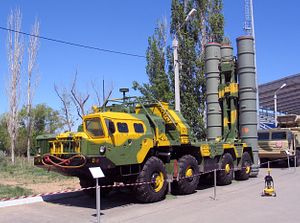Some defense and security stories you may have missed as we head into the Christmas weekend:
Special delivery for Kazakhstan. Who doesn’t love a good free-shipping deal during the holiday season? The Russian government just completed the delivery of an S-300 missile defense system to Kazakhstan for free. The delivery will speed up missile defense cooperation between Moscow and Astana—the two countries aspire to a common, networked missile defense system. The Russian government is planning a similar expansion of missile defense with other members of the Commonwealth of Independent States (CIS), a grouping of former Soviet states. “We have approved for 2016 a plan of work of the Defense Ministers’ Council of the CIS countries and a plan of common steps on the joint air defense system,” Russian Defense Minister Sergey Shoigu noted, according to Russian media reports.
Intel ground-game evaporates in Afghanistan. Lots of interesting writing out recently on intelligence on the battlefield in Afghanistan. First, read this Wall Street Journal report outlining the poor status of the once-extensive NATO and Afghan intelligence apparatus in the country. Afghanistan’s poor infrastructure and stark urban-rural divide, combined with a concentration of intel-gathering apparatuses on military bases, has granted the Taliban and other militant groups additional freedom of movement.
Strange bedfellows in intelligence. Zamir Kabulov, an Russian foreign ministry official and President Vladimir Putin’s special representative for Afghanistan, told Russian media that Russia was sharing intelligence with the Taliban to aid the group’s fight against the Islamic State in Afghanistan. “The Taliban interest objectively coincides with ours,” Kabulov said. The extent to which Russia is sharing information with the Taliban and the controls on the use of that information remain unknown, but the development indicates the extent to which Moscow is expanding its involvement in the fight against the Islamic State in Afghanistan. Moscow’s parallel military campaign in Syria has come under criticism for inadequately focusing on the Islamic State.
Modi in Russia with defense on the agenda. I’ll be covering the outcomes in the next week, but keep an eye on Indian Prime Minister Narendra Modi’s annual summit with Vladimir Putin—lots of potential defense and security deals are expected, restoring Russia’s status as India’s top defense equipment provider.
Big (defense budget) in Japan. As The Diplomat noted that earlier this year, Tokyo proposed a record-high defense budget, amid growing tensions with China over disputes in the East China Sea and an aspirational goal to expand the country’s role in Asian security. This week, the Japanese cabinet finally approved a budget for next year, including 5.05 trillion yen for the country’s defense budget.

































